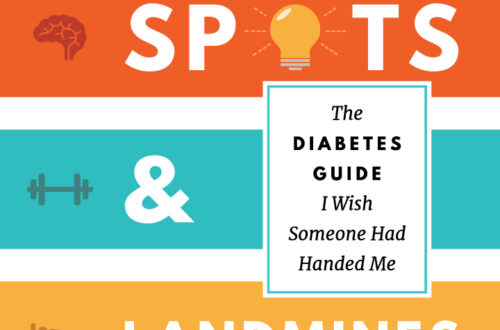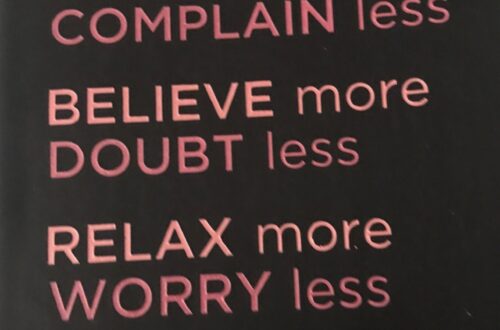
#ADCES22 conference is in the books! We not only had a great time reconnecting with colleagues and friends, we also learned a lot. We were particularly interested in sessions that incorporated solution-focused tenets to see how our ideas and practices align. One that particularly struck us was the keynote speaker, Heidi Grant, PhD from Columbia University Motivation Science Center and author of 9 things successful people do differently, who spoke on what successful people do differently. Today’s blog is a little longer, but we think it may transform your thinking.
When getting ready to do something, or pursue a goal, people bring 2 mindsets
- Fixed mindset. The first, a fixed mindset – is about proving your ability, demonstrating your skills to others, and comparing yourself to others. The minute something goes wrong, you start to question yourself, and thoughts can turn to, “Maybe I don’t have the ability” when things are hard, which becomes a self-fulfilling prophecy. This can lead to anxiety which makes it even harder to move forward. You think you can’t do something, so you don’t do it.
- Growth mindset. On the other hand, a growth mindset is rather than thinking about proving your ability, the focus is on IMproving your ability over time and developing skills. Those with a growth mindset are more concerned with ” how am I doing TODAY,” compared to yesterday or last week, as opposed to comparing self to others.
Adopt a growth mindset
We believe that a growth mindset aligns with using a solution-focused approach, in which we encourage small steps to move someone forward in the direction of their goals. The growth mindset draws focus to one’s own progress. According to Grant, “The growth mindset is the single best predictor of persistence and resilience in the face of setbacks and challenges.” We frequently write about persistence and resilience in solution-focused practice. Grant referred to the growth mindset as a “super power” when it comes to persistence and resilience.
In taking a solution-focused approach to diabetes care and education, we can step alongside our clients/patients and help them recognize a fixed mindset and shift to foster this growth mindset. For example if you hear someone say “I’m not good at this”, you can encourage them to shift to saying, “I’m not good at this YET.” Or, “It’s not about doing good, it’s about getting better.” This shift helps to create the desire to do something and move forward. It’s a journey and about growing over time. The more one does this shifting, the less they’ll have to do it. It will become a habit.
One solution-focus tactic to help to evaluate progress over time is to incorporate scaling questions. For example, on a scale of 0 to 10 where 0 is not confident and 10 is very confident, compared to yesterday, how confident are you that you can work towards your goal.
Dr. Grant noted that there are not many things as impactful as a mindset with which you approach a task. Those that adopt a growth mindset experience:
- More willingness to take smart risks ( willing to make mistakes, learn and grow)
- More persistence and resilience
- Creativity
- Deeper thinking
- Interest and enjoyment
Growth mindset language
We frequently touch on the power of person-first, strengths-based language. When we think of language associated with a growth mindset, Dr. Grant encouraged use of these words:
- Grow
- Progress
- Become
- Over time
- Develop
- Improve
Be a realistic optimist
Of course, pessimism – which is believing you’ll fail – can be challenging. As can unrealistic optimism – which is believing you’ll succeed easily. Realistic optimism on the other hand, is believing you’ll succeed, but at times it can be difficult. We call attention to this as it’s important to help clients build realistic optimism. We can help prepare people for their journey. The future is something to be achieved. A simple formula is to vividly imagine the future is similar to the Miracle Question we’ve shared in prior blogs. We can encourage clients to consider how they will feel, what they willI be doing, and how they will overcome obstacles. Using future-visioning questions as we’ve shared, can help move clients towards their desired future.
Make if-then goals
As Dr. Grant noted, two of the biggest obstacles to achieving a goal are
- Knowing EXACTLY what to do (not being specific enough)
- Missing opportunities to act
As we all know, there is a “knowing-doing” gap. People often know what they “should” do, but don’t do it for many reasons.There are times when the goal “could” have happened but the opportunity is missed. One solution is to make “if-then plans” (forming implementation intentions) – a very effective form of planning to overcome this gap. For instance, “If (or when) situation X occurs, THEN I will perform Behavior Y”.
For example, IF I go into the breakroom and there are donuts, THEN I will have a cup of coffee.” Advance planning is very effective. By incorporating eliciting questions a client can be guided to develop several if-then plans. By asking “What else?” you can drill down to make a very specific plan. Creating these plans can equip your client to have them ready in their back pocket when potentially challenging situations arise. By creating if-then plans you’re also helping the client to practice problem-free talk. If-then is similar to using exception questions, which we’ve shared in prior blogs. A successful if-then plan replaces challenging habits with positive changes and helps to develop small changes over time.
Our challenge to you as a think partner with your clients/patients
- Guide them in building resilience with a growth mindset.
- Equip them to be ready to act with realistic optimism.
- Support them in learning to bridge the knowing-doing gap with if-then plans.
We welcome anyone interested in our approach to Subscribe to our blog and we’ll email you when a new post is published!
If you are a health care professional and interested in learning more about our solution-focused practice and approach, when you subscribe to our blog, we’ll send you in return a FREE resource of 10 Solution-Focused Questions to start a solution-focused discussion with your clients.
Follow us on Twitter and Instagram @AFreshPOVforYou
Deb is employed by Dexcom, but her words and opinions in this blog are her own.
Tami is employed by the University of Kentucky HealthCare Barnstable Brown Diabetes Center, but her words and opinions in this blog are her own.




